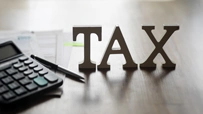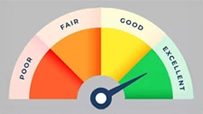Home Loan vs HRA: Which One Can Help You Save More on Tax?
Disclaimer: This blog contains generic information only. Ujjivan SFB is not responsible for the accuracy of the information provided herein. Please click 'Apply Now' to view our Home Loan products.
September 02, 2025

Both home loan and HRA (House Rent Allowance) come with tax benefits, albeit under different Income Tax laws. While paying off your home loan allows you to claim tax deduction on the principal and the interest repaid, HRA is a component of a salaried individual's compensation package, usually provided by the employer, designed to provide tax benefits for the rental accommodation they live in. Each option offers unique advantages that can substantially impact your financial health.
This blog aims to demystify these options, helping you to make an informed decision based on your financial situation. We will explore how both can offer significant tax savings, delve into their respective advantages, and evaluate the better choice for you.
Home Loan Tax Benefits
1. Understanding Tax Deductions
A house loan offers significant tax savings while assisting you in purchasing your ideal home.
Here’s how:
- Principal Repayment: Under Section 80C of the Income Tax Act, you can claim tax deduction of up to ₹1.5 lakh per annum on the principal amount repayment. This includes payment done towards stamp duty charges.
- Interest Payment: Interest paid on a home loan is deductible up to ₹2 lakh per annum under Section 24(b) of the Income Tax Act
- Additional Deductions: You can claim addition deduction of up to ₹1.5 lakh per year on the interest component (over and above Section 24b) under Section 80EEA if you meet certain terms and conditions.
Sample Calculation
Imagine you have taken a home loan where the annual repayment amount sums up as follows:
- Loan Amount: ₹40,00,000
- Loan Tenure: 20 years
- Interest Rate: 7.5% p.a.
- EMI: ₹32,200
Principal Repayment in a Year: ₹1,00,000
Interest Payment in a Year: ₹2,40,000
- Property Ownership: Self-occupied
Tax Benefits Breakdown:
1. Section 80C: Deduction on Principal Repayment
- Maximum deduction allowed: ₹1,50,000 per year.
- Actual principal repayment for this year: ₹1,00,000.
- Deduction under Section 80C = ₹1,00,000.
2. Section 24(b): Deduction on Interest Payment
- Maximum deduction allowed (self-occupied property): ₹2,00,000 per year.
- Actual interest paid this year: ₹2,40,000.
- Since the deduction is capped at ₹2,00,000, you can claim:
- Deduction under Section 24(b) = ₹2,00,000.
Total Tax Deductions:
- Section 80C (Principal): ₹1,00,000
- Section 24(b) (Interest): ₹2,00,000
- Total Deduction = ₹3,00,000
Tax Savings Calculation (Considering 30% Tax Bracket):
- Tax Savings = ₹3,00,000 × 30% + 4% Cess
- Tax Savings = ₹90,000 + ₹3,600 = ₹93,600
Final Outcome:
- Total Tax Savings = ₹93,600 for the year.
Disclaimer: The above example is for illustration purpose only. Ujjivan SFB does not take any responsibility for the accuracy of the information. Please consult a tax adviser to understand the tax implications.
HRA Tax Benefits
HRA exemption is calculated as the least of the following:
- Actual HRA received from the employer.
- 50% of salary (basic + dearness allowance) for employees living in metro cities (Delhi, Mumbai, Chennai, or Kolkata), or 40% for non-metro cities.
- Actual rent paid minus 10% of salary (basic + dearness allowance).
Example Calculation:
- CTC: ₹20,00,000 annually
- Basic Salary: ~40% of CTC (standard assumption) = ₹8,00,000 annually = ₹66,667 per month
- HRA Component: ~50% of basic salary (common allocation) = ₹4,00,000 annually = ₹33,333 per month
- Rent Paid: ₹20,000 per month = ₹2,40,000 annually
- City: Mumbai (metro city, so 50% of basic salary is considered for HRA exemption)
- Tax Bracket: Highest tax slab (30%).
Step 1: Calculate Tax-Exempt Portion of HRA
The exempt portion of HRA is the least of the following three:
- Actual HRA Received: ₹33,333 per month = ₹4,00,000 annually
50% of Basic Salary (for metro cities):
₹66,667 × 50% = ₹33,333 per month = ₹4,00,000 annually
Rent Paid - 10% of Basic Salary:
Rent Paid = ₹20,000 per month = ₹2,40,000 annually
10% of Basic Salary = ₹66,667 × 10% = ₹6,667 per month = ₹80,000 annually
Excess Rent = ₹2,40,000 - ₹80,000 = ₹1,60,000 annually
The least value is ₹1,60,000.
Step 2: Taxable Portion of HRA
- HRA Received: ₹4,00,000
- Exempt HRA: ₹1,60,000
- Taxable HRA: ₹4,00,000 - ₹1,60,000 = ₹2,40,000
Step 3: Tax Savings via HRA
The exempt HRA of ₹1,60,000 reduces your taxable income. Your tax savings depend on your tax slab:
- 30% Tax Bracket: ₹1,60,000 × 30% = ₹48,000 saved annually.
Disclaimer: The above example is for illustration purpose only. Ujjivan SFB does not take any responsibility for the accuracy of the information. Please consult a tax adviser to understand the tax implications.
Comparison Between Home Loan and HRA Tax Benefits
| Parameters | Home Loan | HRA |
| Purpose | Aimed at individuals who have purchased a house, offering incentives on the loan repayment. | Designed for individuals living in rented accommodation to help offset the cost of rent. |
| Eligibility | Available to both salaried and self-employed individuals who have taken a loan to buy or construct a house. | Available only to salaried employees who receive HRA as part of their salary structure and live in a rented property. |
| Tax Provisions | Deduction under Section 80C, 24(B) and 80EEA | Exemption is calculated under Section 10(13A) of the Income Tax Act. |
| Tax Saving Potential | Potentially higher tax savings due to dual benefits on interest and principal repayment. | Limited by rent paid, HRA received, and salary structure, offering relatively smaller tax savings. |
| Ownership Implications | Leads to property ownership, which can appreciate in value over time. | No ownership rights since the individual lives in a rented property. |
Bonus Tip: If you own a house in one city and live in a rented accommodation in another (e.g., due to work), you can claim HRA benefits and home loan tax deductions simultaneously, provided you meet certain conditions
Employer Doesn’t Have HRA Provision? You can Still Claim Tax Deduction
For the unversed, you can still claim tax deduction even if your employer doesn’t have HRA as a component in your salary break-up. You can claim HRA deduction under Section 80GG of the Income Tax Act.
However, to claim HRA from your employer or otherwise, you would need
- Rent receipts or rental agreements as proof.
- If the annual rent exceeds ₹1 lakh, the PAN of the landlord must be provided.
So, Which One Helps Save More Tax – HRA or Home Loan?
Home loans have the potential to help save more on taxes, especially because it offers tax deduction on both principal and the interest component. Also, if you’re self-employed, you won’t be able to claim HRA. That said, if you live in a rented house and don’t plan to purchase a property with home loan, you can opt for HRA deduction.
Final Thoughts
Both home loans and HRAs offer significant tax savings but cater to different needs and life situations. Your decision should be based on financial stability, long-term goals, and lifestyle preferences.
Buying a house has never been this easy! Avail Ujjivan SFB’s wide range of affordable home loan products and enjoy a hassle-free loan journey. From house purchase loan to plot loans and home improvement loans, we have it all! Alternatively, you can browse through Ujjivan SFB product suite - our wide range of financial products are designed to make your financial life better.
Disclaimer:
The contents herein are only for informational purposes and generic in nature. The content does not amount to an offer, invitation or solicitation of any kind to buy or sell, and are not intended to create any legal rights or obligations. This information is subject to updation, completion, amendment and verification without notice. The contents herein are also subject to other product-specific terms and conditions, as well as any applicable third-party terms and conditions, for which Ujjivan Small Finance Bank assumes no responsibility or liability.
Nothing contained herein is intended to constitute financial, investment, legal, tax, or any other professional advice or opinion. Please obtain professional advice before making investment or any other decisions. Any investment decisions that may be made by the you shall be at your own sole discretion, independent analysis and evaluation of the risks involved. The use of any information set out in this document is entirely at the user’s own risk. Ujjivan Small Finance Bank Limited makes no representation or warranty, express or implied, as to the accuracy and completeness for any information herein. The Bank disclaims any and all liability for any loss or damage (direct, indirect, consequential, or otherwise) incurred by you due to use of or due to investment, product application decisions made by you on the basis of the contents herein. While the information is prepared in good faith from sources deemed reliable (including public sources), the Bank disclaims any liability with respect to accuracy of information or any error or omission or any loss or damage incurred by anyone in reliance on the contents herein, in any manner whatsoever.
To know more about Ujjivan Small Finance Bank Products Visit:"https://www.ujjivansfb.in"
All intellectual property rights, including copyrights, trademarks, and other proprietary rights, pertaining to the content and materials displayed herein, belong
to Ujjivan Small Finance Bank Limited or its licensors. Unauthorised use or misuse of any intellectual property, or other content displayed herein is strictly prohibited and the same is not intended for distribution to, or use by, any person in any jurisdiction where such distribution or use would (by reason of that person’s nationality, residence or otherwise) be contrary to law or registration or would subject Ujjivan Small Finance Bank Limited or its affiliates to any licensing or registration requirements.
FAQs
1. What are the limits for principal deduction under Section 80C?
You can deduct up to ₹1.5 lakh annually for principal repayments on your home loan.
2. Can I claim both HRA and Home Loan benefits?
Yes, if you fulfill certain conditions, such as living on rented premises while owning another property.
3. Is there any benefit in choosing rental over homeownership?
Renting may offer flexibility and lower responsibilities regarding maintenance.
4. How does my income affect my choice between HRA and home loans?
Higher-income levels benefit more substantially from home loan tax deductions due to higher taxable incomes.
5. Can I claim stamp duty under tax deductions?
Yes, stamp duty and registration charges are deductible under Section 80C during the year they are paid.
6. What is the maximum deduction available for home loan interest payments?
Up to ₹2 lakhs per annum under Section 24(b).
7. How do metro city residents benefit differently from non-metro residents concerning HRA?
Metro city residents can claim a higher percentage (50%) of their basic salary than non-metro residents (40%).
8. What should I consider when deciding between buying and renting?
Consider factors like financial stability, job location stability, long-term goals, and personal preferences like mobility needs.
9. Are there any additional costs associated with owning a home?
Yes, homeowners need to account for maintenance costs and property taxes, among other expenses that renters typically do not face directly.
10. How does property appreciation affect my decision?
Owning a property that appreciates over time can provide significant financial benefits as part of long-term wealth-building strategies.
11. Is buying at the early or later stages of life better financially?
Early purchase helps in a longer duration for repaying the mortgage before retirement besides allowing potentially higher appreciation time, but it needs stable finances.
12. Does location affect decision-making between renting vs buying?
Absolutely; prime locations might render buying much more beneficial due to expected growth in property values compared to rental costs.
Latest Blogs

Gold Loan LTV Ratio Explained (75% to 85%): What It Means for Borrowers
March 20, 2025
In June 2025, the Reserve Bank of India (RBI) introduced a significant relaxation for gold loan borrowers: the maximum Loan-to-Value (LTV) ratio for loans below ₹2.5 lakh was raised to 85%, up from the long-standing cap of 75%. Loans between ₹2.5 lakh and ₹5 lakh can now go up to 80%, while loans above ₹5 lakh continue under the 75% ceiling.

Good Debt vs Bad Debt: Learn the Difference
August 13, 2025
Every month, millions of Indians wait for the familiar debit alert, an EMI deducted from their account.

Got a Tax Refund? 5 Smart Ways to Put Your 2025 Refund to Work
August 13, 2025
For many taxpayers, there’s a unique sense of relief when a tax refund arrives.

Credit Score Not Improving? 5 Mistakes You Might Be Making
August 13, 2025
For most of us, a credit score feels like a silent judge sitting in the background of our financial lives.

Banking Jargon Decoded: 15 Key Terms You Should Know
May 13, 2025
Banking feels simple on the surface; deposit money, withdraw when needed, pay bills, or transfer funds.




